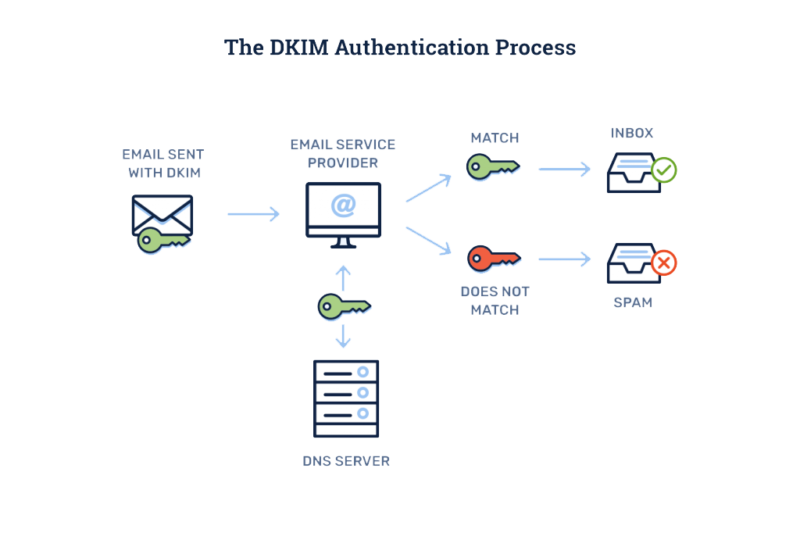DKIM. DomainKeys Identified Mail
DKIM (DomainKeys Identified Mail) is an email security standard designed to make sure messages aren’t altered in transit between the sending and recipient servers. It uses public-key cryptography to sign email with a private key as it leaves a sending server. Recipient servers then use a public key published to a domain’s DNS to verify the source of the message, and that the body of the message hasn’t changed during transit. Once the signature is verified with the public key by the recipient server, the message passes DKIM and is considered authentic.
While DKIM isn’t required, having emails that are signed with DKIM appear more legitimate to your recipients and are less likely to go to Junk or Spam folders. Spoofing email from trusted domains is a popular technique for malicious spam and phishing campaigns, and DKIM makes it harder to spoof email from domains that use it.
DKIM is compatible with existing email infrastructure and works with SPF and DMARC to create multiple layers of security for domains sending emails. Mail servers that don’t support DKIM signatures are still able to receive signed messages without any problems. It’s an optional security protocol, and DKIM is not a universally adopted standard.

